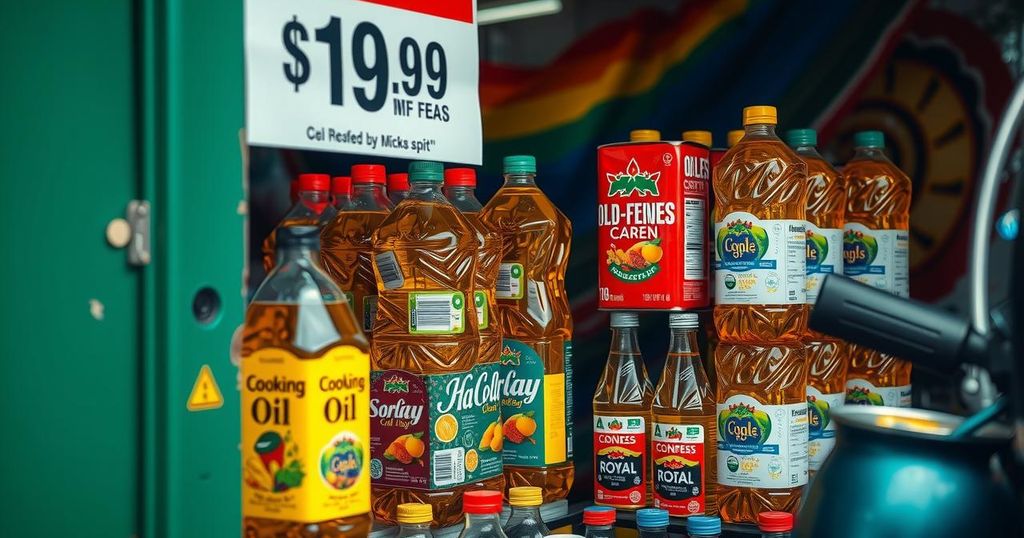COMESA Report Highlights 21% Overcharge on Cooking Oil in Kenya
A COMESA report indicates that Kenyan cooking oil companies overcharged consumers by 21%, resulting in excessive charges of Sh67.7 billion from July 2021 to December 2022. The fair price for cooking oil should have been Sh274 per liter, instead of Sh333, which imposed significant financial strain on households and highlighted the need for regulatory reforms in the market.
A recent report from the Common Market for Eastern and Southern Africa (COMESA) has brought to light that cooking oil companies in Kenya have overcharged consumers by 21% from July 2021 to December 2022. The COMESA Competition Commission (CCC) estimates that the fair price for cooking oil should have been around Sh274 per liter, yet consumers were instead charged Sh333 per liter, culminating in an excess charge of Sh67.7 billion during this timeframe. Notably, this price increase significantly outpaced the rise in crude palm oil costs, and despite a subsequent drop in crude prices in early 2022, retail prices remained artificially high well into 2023.
The current structure of the vegetable oil market in Kenya is characterized as an oligopoly, with a few companies exerting control over the entire value chain, from raw material supply to distribution. This consolidation of market power, along with inadequate competition, permits these leading firms to impose pricing that serves their interests rather than accurately reflecting market conditions. Historical data illustrates a stark shift; in 2019 and 2020, the price of cooking oil was stable at approximately USD1.6 (Sh207) per liter but has seen an unprecedented surge to Sh333 per liter, placing immense strain on Kenyan households and significantly impacting food security, especially for vulnerable populations.
The Sh67.7 billion excess charge indicates a substantial loss not just for households but for potential national development, as these funds could otherwise have supported sectors critical to public welfare, such as employment opportunities, education, and healthcare services. In light of these findings, the CCC has underscored the urgent need for stricter regulatory oversight within essential commodity markets, stressing that the affordability and accessibility of cooking oil is vital for maintaining public welfare given its fundamental role in diets.
The COMESA report highlights serious concerns regarding pricing practices in Kenya’s cooking oil market, revealing that corporations charged consumers significantly above the fair price. The findings prompt a review of market structures that allow such pricing discrepancies and their wider implications for food security and economic development in Kenya. By shedding light on these practices, the report calls for necessary reforms aimed at enhancing competition and regulatory oversight within the essential commodity markets.
In conclusion, the findings from the COMESA report reveal a troubling pattern of overpricing in Kenya’s cooking oil sector, burdening consumers with additional financial strain. The role of oligopoly in facilitating these practices necessitates urgent regulatory reform to protect consumer interests and promote fair pricing. Addressing these challenges is essential not only for individual households but also for promoting broader economic development and social welfare in the region.
Original Source: www.mwakilishi.com




Post Comment